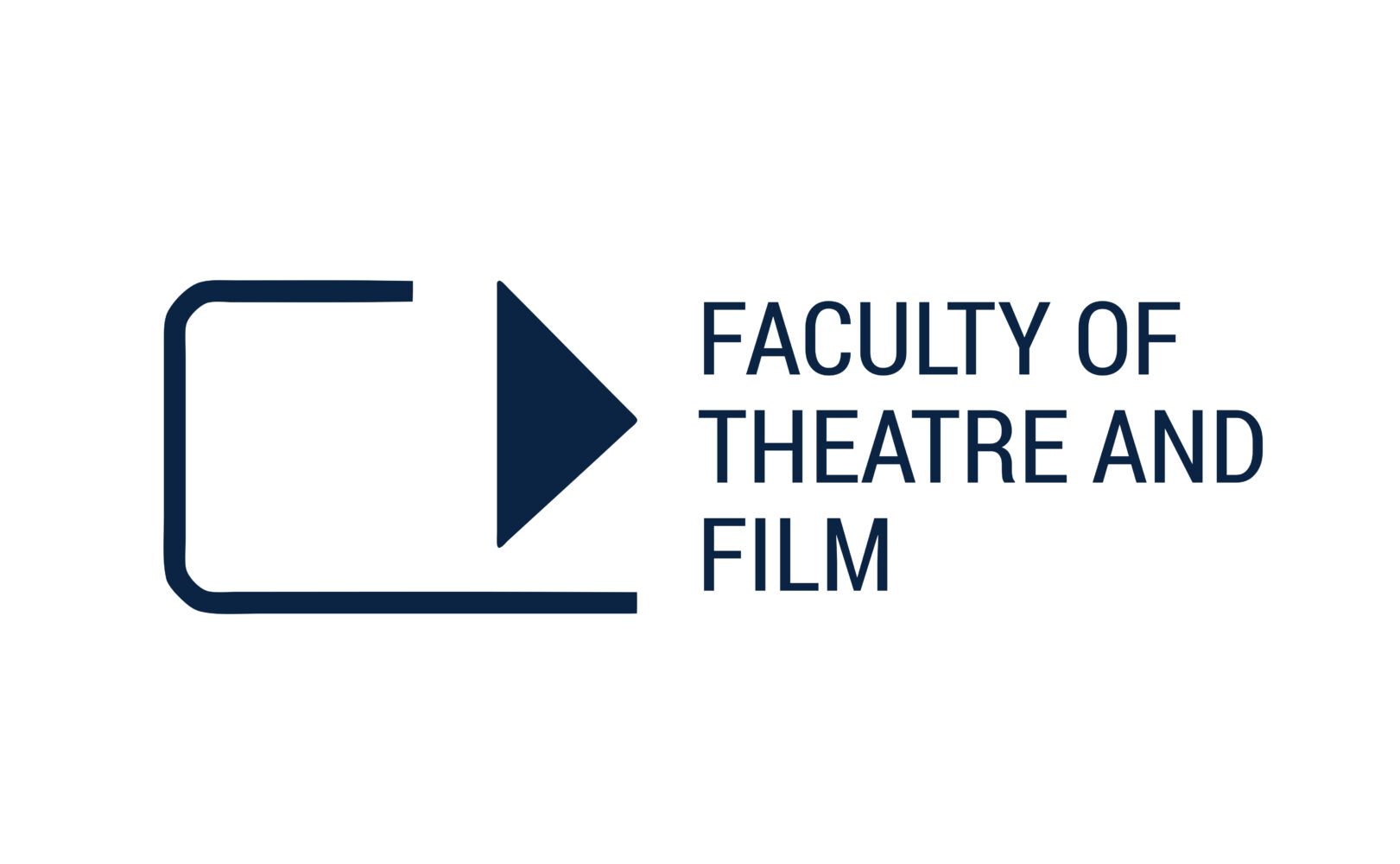The title of the project makes reference to one of the most debated issues today: manipulation and the means to tackle it. Reverse Manipulation refers to the act of manipulating a situation or information as though someone else is responsible or at fault. More precisely, the title is understood as a way to oppose, to establish an antithesis, or to react promptly to counter any form of manipulation. At the same time, it suggests manipulation as an assumed artistic act, a way to engage and temporarily control the participant while experiencing the artwork. Thus, the title reflects equally the main preoccupations of the artists included in the project, and aims to address and respond to the provocations formulated interrogatively in the generic of 2023 Ars Electronica: Who Owns the Truth?
The theme is approached by the artists in different conceptual and productive frameworks. One is represented by interactive digital installations which, in one case, activates the public through using people’s own voice, in another, speculating the fragmentation of the body, or in other work, referring to maps, weather and the manipulation through mass-media. Other works are based on extended reality experiences such as AR and VR in order to speak about mental health, to immerse the viewer in a totally imagined, abstract environment, or to address questions in a dystopic key to our biological limits. Yet another project employs AI to speculate about the intricate relationship between myth and truth.
Curator: Horea Avram (RO)
-
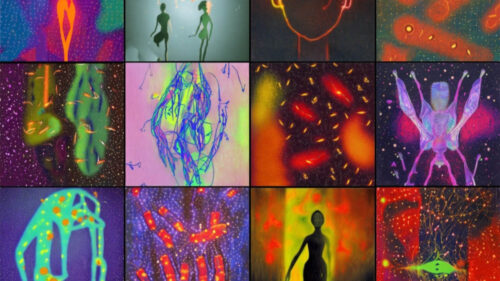
Anamorphic Reality (AR)
Andra Purdea (RO)
AR experience that questions the effects of the rapid digital development today and the decline in mental health in the context of artificial intelligence and native intelligence.
-
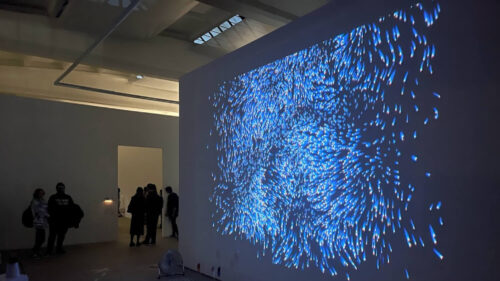
Blow Mt Flowers
Agata Olteanu (RO)
This installation is a reminder that childhood is right around the corner, no matter how old we are. The audience is called to reflect upon the simplicity of life through a universe of particles that form a wind map whenever air is moved inside the interaction zone.
-
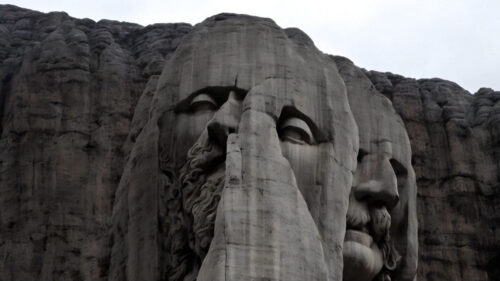
Dragons, Giants, Citadels
Toma Bărbulescu (RO)
AV installation which explores Romanian mythology regarding dragons, giants and their citadels, from the perspective of folklore explanation of geomorphology in the West Carpathian Mountains.
-
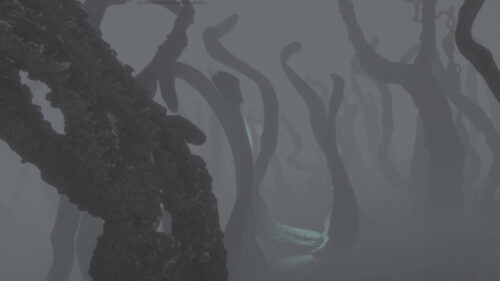
Enigmatic Reflections
Florin Adrian Marc (RO)
The installation Enigmatic Reflections uses VR to stimulate the imagination of the participant, challenging them to question what is real and what is imaginary. Participants are invited to venture into an immersive experience where the boundary between reality and imagination becomes blurred, asking them to reflect on their perception of reality.
-
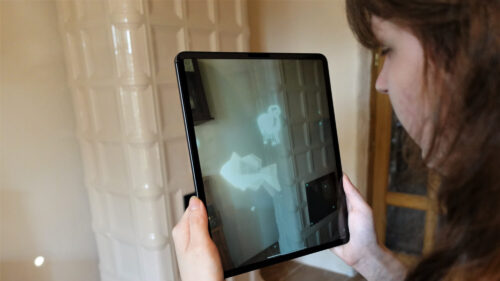
Fantasia Enclosure
Ana-Maria Bocaniciu (RO)
Fantasia Enclosure is an augmented reality installation that questions the possibility of virtual life and the relationship with reality, by placing known animals and human companions to run around in the same space. The audience is encouraged to approach the animals and to interact with them as they wander in 3D space.
-
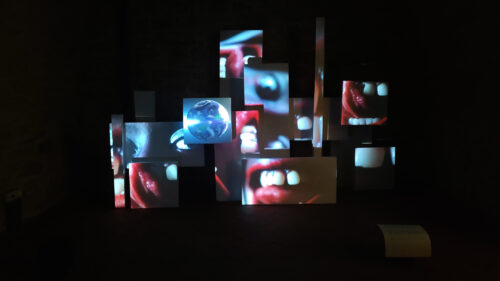
Fragmentation
Lucia Codreanu (RO)
Fragmentation is an audio-video installation that explores the idea of eternal living through “undead” bodies. It uses spatial depth and irregular frame ratios as an artistic means to influence visual perception and to encourage self-reflection on the nature of existence.
-
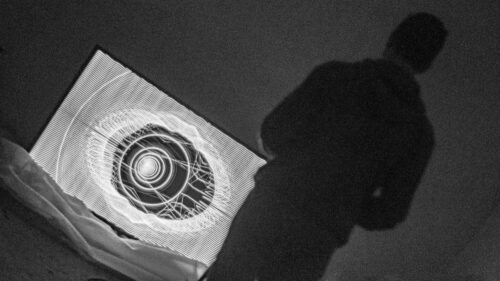
Visual Voice
Cristina Pop-Tiron (RO)
Visual Voice is an experience that puts you in control of the visual display using mainly your voice. The rings appear and vibrate alongside the stories and sounds you want to speak, whisper, or confess.
About the Faculty of Theater and Film
The Faculty of Theater and Film, at the Babeș-Bolyai University, is a multicultural academic institution appreciated for the quality of education, excellence in research, active student life and opportunities for collaboration. It is one of the most important art faculties in Romania in the field of Cinema, Media and Theater. Digital Interactive Arts is a professional master program that offers a comprehensive, multidisciplinary and innovative approach to media arts theory and production.
Credits
Digital Interactive Arts Master program @ Faculty of Theater and Film, Babeș-Bolyai University, Cluj-Napoca, Romania.



